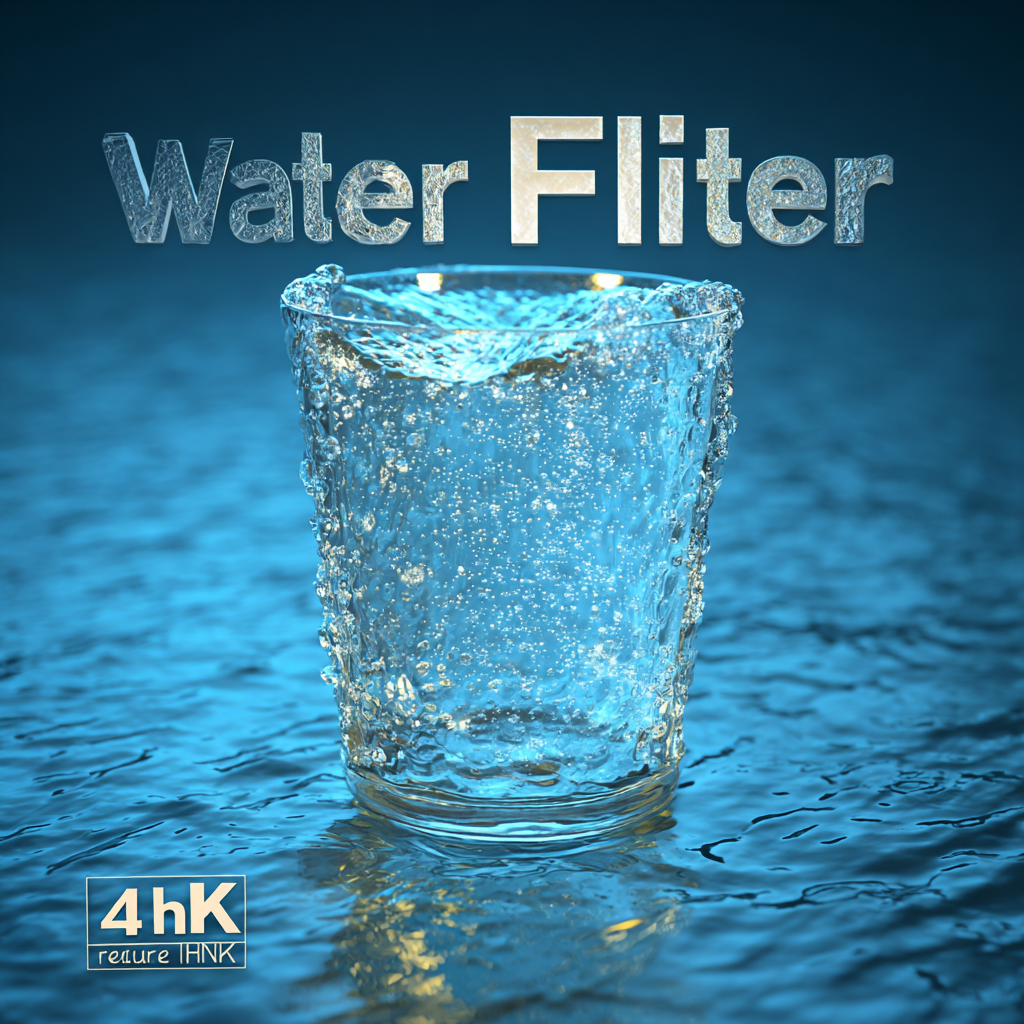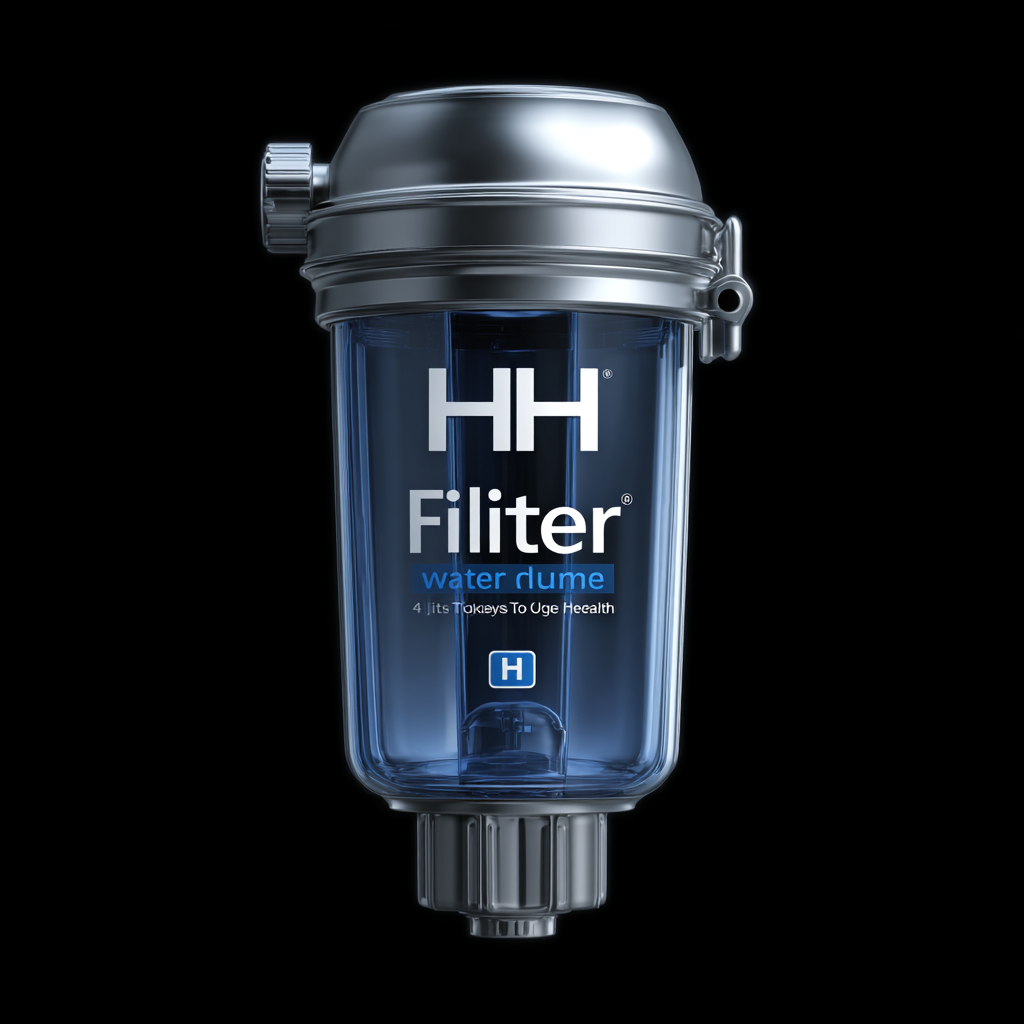
Unveiling the Top Water Filter Choices for Your Home and Health
As concerns over water quality continue to rise, the significance of choosing the right water filter for your home goes beyond mere convenience; it impacts your health and well-being. According to the Environmental Protection Agency (EPA), contaminants such as lead, bacteria, and chlorine can pervade tap water, leading to potential health risks. A 2021 market research report from IBISWorld highlights a growing industry trend, projecting that the water filtration industry will reach $12 billion by 2025, primarily driven by increasing consumer awareness about the necessity of clean drinking water. As households increasingly seek solutions for purifying their water, it's essential to understand the diverse range of water filters available, each designed to address specific contaminants and improve water taste and safety. In this blog, we will unveil the top water filter choices that can effectively cater to your home and health needs.

Understanding Different Types of Water Filters for Home Use
When it comes to ensuring the purity of your drinking water, understanding the different types of water filters available for home use is essential. Each type of water filter employs specific technologies to address various contaminants, making any choice crucial for your health. Activated carbon filters are among the most popular options, effectively removing chlorine, sediment, and volatile organic compounds (VOCs) through a process of adsorption. These filters are often found in pitcher filters or faucet attachments, providing a convenient and affordable solution for improving tap water quality.

Another widely used type is reverse osmosis (RO) systems, which utilize a semi-permeable membrane to eliminate a broad spectrum of contaminants, including heavy metals, salts, and microbial pathogens. These systems are typically installed under the sink and may produce pure, filtered water for drinking and cooking, while also rejecting harmful substances. Alternatively, UV water purifiers use ultraviolet light to disinfect water by neutralizing bacteria and viruses, offering a chemical-free approach to water purification. By understanding the unique advantages and limitations of each type, you can make an informed decision that best meets your household's water quality needs.
Examining Health Benefits of Using Water Filters
The health benefits of using water filters are increasingly in the spotlight, particularly in light of recent research revealing alarming levels of microplastics infiltrating global drinking water. Researchers from the University of Tulsa in Texas found that current wastewater treatment methods often fail to completely remove microplastics, which carry harmful pollutants, posing significant health risks to consumers. With up to 40% of water filtration systems failing quality checks, as reported by the National Quality Inspection Bureau, it’s crucial for consumers to be informed about which filters are effective and reliable.
The growing public awareness surrounding drinking water safety highlights the urgent need for standardized testing and increased consumer education. The introduction of new industry standards and performance testing methods signifies a positive shift towards greater accountability in the water filtration market. Moreover, innovative solutions are surfacing, such as plant-based filters that have shown the potential to remove up to 99.9% of microplastics from water, promising an environmentally friendly approach to ensuring safe drinking water. As awareness around water safety continues to rise, so does the responsibility of consumers to choose high-quality filtration systems that genuinely enhance their health and well-being.
Factors to Consider When Choosing a Water Filter
When selecting a water filter for your home, several critical factors should guide your decision. Firstly, it’s essential to consider the type of contaminants present in your water supply. A study published in the Journal of Water Supply Research and Technology found that approximately 15% of household tap water contains some level of lead, highlighting the importance of filtration systems capable of removing heavy metals. This underscores the necessity of conducting a water quality test prior to choosing a filter, thereby ensuring that it effectively addresses specific health concerns.
Another consideration is the filter's lifespan and maintenance frequency. Research indicates that consumers often overlook the costs associated with replacement filters and upkeep, which can significantly affect the overall value of a water filtration system. According to a report by the Environmental Protection Agency, an efficient home water filter can save households up to 3,000 plastic bottles per year by decreasing reliance on bottled water. Thus, selecting a filter that balances efficacy with ease of maintenance can not only promote better health but also support an eco-friendly lifestyle.
Top Water Filter Choices for Your Home and Health
Top Recommended Water Filters for Every Household Need
Choosing the right water filter for your home can significantly enhance both your health and the quality of your drinking water. Various households have different needs, and identifying the best filter can seem daunting. For those living in areas with hard water, a reverse osmosis system may be ideal, as it removes a wide range of contaminants, including heavy metals and chlorine. Meanwhile, families seeking convenience might benefit from activated carbon filters, which are efficient in improving taste and reducing odors.
When selecting a water filter, consider the specific contaminants in your water supply. Testing your water can provide valuable insights, and many local health departments offer free test kits. Additionally, look for filters that are certified by organizations like NSF International, which ensures they meet rigorous performance standards.
Tip: Regular maintenance is essential for maintaining your filter's effectiveness. Keep track of filter replacement timelines and clean the system as recommended by the manufacturer. This not only prolongs the life of your water filter but also ensures you are consuming the safest water possible.
Unveiling the Top Water Filter Choices for Your Home and Health - Top Recommended Water Filters for Every Household Need
| Filter Type | Filtration Method | Contaminants Removed | Filter Lifespan (Months) | Price Range (USD) |
|---|---|---|---|---|
| Activated Carbon Filter | Carbon Absorption | Chlorine, Sediment, Volatile Organic Compounds (VOCs) | 6-12 | $20 - $100 |
| Reverse Osmosis System | Membrane Filtration | Heavy Metals, Nitrates, Fluoride | 2-5 | $150 - $500 |
| Ultraviolet (UV) Filter | UV Light Disinfection | Bacteria, Viruses | 12 | $100 - $300 |
| Ceramic Filter | Ceramic Filtration | Bacteria, Protozoa, Sediments | 6-12 | $30 - $150 |
| Whole House Filter | Multi-stage Filtration | Sediment, Hardness, Chlorine | 12-24 | $400 - $1,500 |
Maintenance Tips for Ensuring Effective Water Filtration
When it comes to maintaining your home water filter, regular upkeep is essential to ensure effective filtration and safeguard your health. First and foremost, it’s crucial to replace filter cartridges according to the manufacturer’s recommendations, which typically range from every three months to a year, depending on usage and water quality. Neglecting to change the filters can lead to clogging and a decrease in filtration effectiveness, allowing contaminants to slip through.

Additionally, routine cleaning of the filter system is vital. This can involve rinsing the outer parts and checking for any signs of mineral buildup or mold which might compromise the filtration process. For faucet-mounted filters, clean any screens and check the hoses for leaks. Also, remember to monitor water flow rates; a decrease might indicate a clogged filter that needs immediate attention. By adopting these simple maintenance practices, you can ensure your water filter operates optimally and provides you with clean, safe drinking water.
